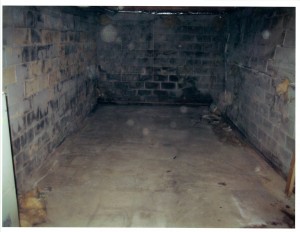Crawl Space vs. Concrete Slab

Both concrete slabs and conventional crawl space foundations have benefits and drawbacks, but the decision largely depends on your lot grading, type of soil around your home, drainage, and landscaping.
When you’re building a house, there are countless decisions to make and one of the most important ones is your foundation. Both concrete slabs and conventional crawl space foundations have benefits and drawbacks, but the decision largely depends on your lot grading, type of soil around your home, drainage, and landscaping. Those factors all will impact the longevity of your foundation.
What’s the Difference?
A concrete slab foundation is exactly what it sounds like, a big rectangle of concrete that makes up the bottom of your home. However, it is anchored in the ground by thick footing around the edges of your foundation, often reinforced by rebar. This leaves no space between the bottom of your basement floor and the ground. A crawl space foundation also has concrete or cinder block footings around the perimeter of your home that are rooted under the ground, but also have piers throughout the floor that stick up to directly support the floor joists under your floor. Piers are either concrete blocks, metal columns, or wooden posts. This leaves an aptly named, crawl space, under your floor, beneath your home.
Pros and Cons of a Concrete Slab
Concrete slabs are generally easier and more budget friendly to install as they can be laid over undisturbed soil, requiring less labor. You also don’t have to worry about animals under your home or leaking pipes damaging your slab foundation. However, a slab limits accessibility to your HVAC systems and ductwork, which means any repairs you may need to these systems will be more expensive. Tree roots can also grow into your slab, causing cracks that water can seep through when it rains and damage your floor, and they are also considered cheap foundations which can impact your home’s resale value if you want to sell your home.
Pros and Cons of a Crawl Space
Conventional crawl space foundations typically home your HVAC under the house for easy maintenance, making repairs easier and less expensive. Your home is also elevated with a conventional crawl space which means you’re also less likely to have termite damage. Crawl space foundations can also be built on a sloped lot using graduated footings. However, crawl spaces are notorious for excess moisture and flooding that can cause a host of problems if left untreated. When constructing your home with a crawl space foundation, the most important things to plan for are adequate drainage away from the crawl space, ventilation to dry out the crawl space, and vapor barriers just in case.
Protect Your Foundation with All Aspects Waterproofing
If you are ready to get a professional to waterproof your home’s basement, contact All Aspects Waterproofing, a Better Business Bureau A+ rated company with over 30 years of experience in the Washington, DC./Maryland/Virginia area. We have a great deal of experience in waterproofing, mold testing, and mold remediation, and we want to make you feel at home again. Contact us online or by calling 1-866-999-3110 or 301-766-4420. To see what we’re up to, follow us on Facebook, Twitter, Google+, Pinterest, YouTube, LinkedIn, and Houzz.
